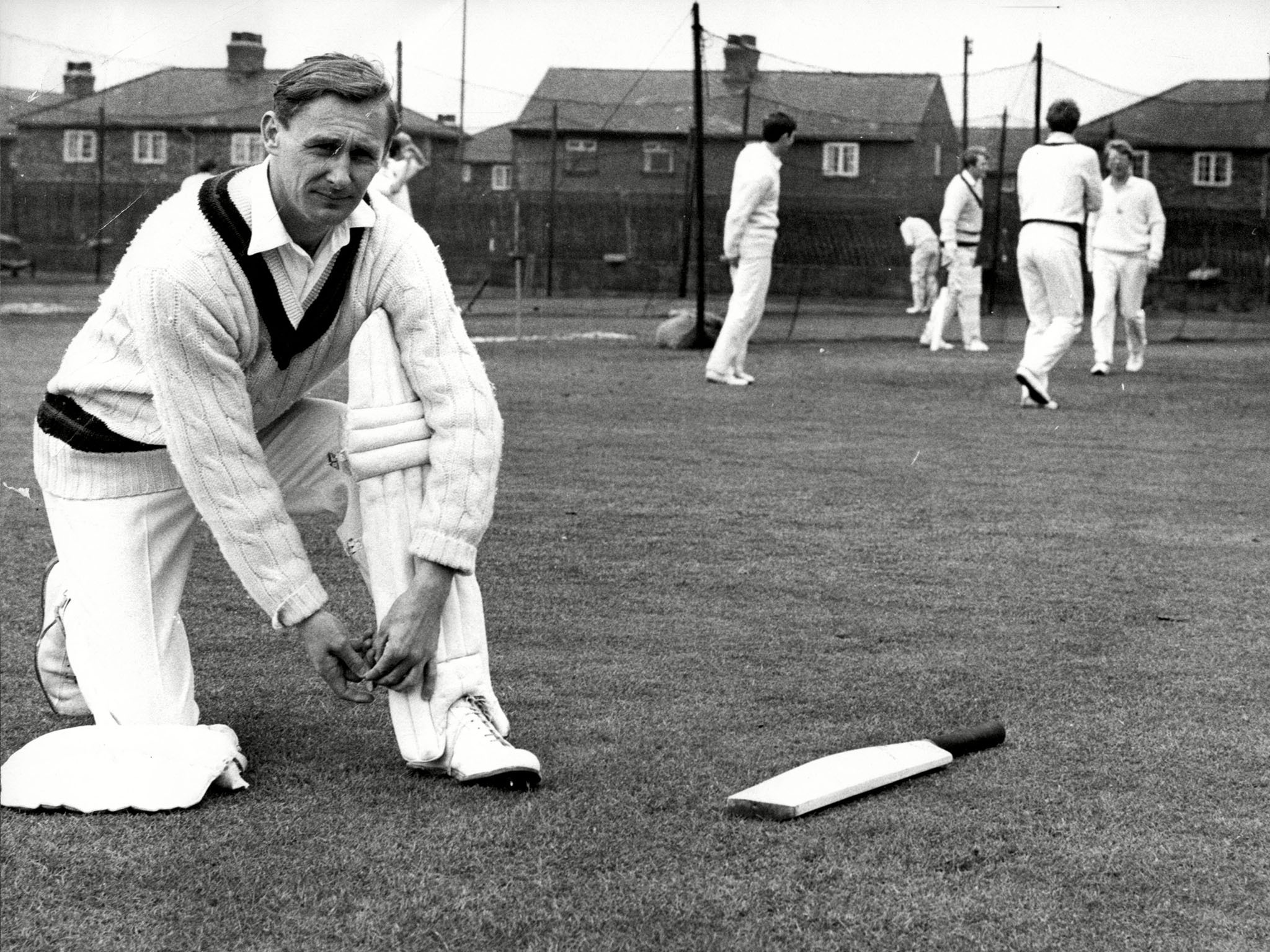Jack Bond: Cricketer who took Lancashire to glorious success
He turned the fortunes of his club around and went on to become a much-respected official of the game

Your support helps us to tell the story
From reproductive rights to climate change to Big Tech, The Independent is on the ground when the story is developing. Whether it's investigating the financials of Elon Musk's pro-Trump PAC or producing our latest documentary, 'The A Word', which shines a light on the American women fighting for reproductive rights, we know how important it is to parse out the facts from the messaging.
At such a critical moment in US history, we need reporters on the ground. Your donation allows us to keep sending journalists to speak to both sides of the story.
The Independent is trusted by Americans across the entire political spectrum. And unlike many other quality news outlets, we choose not to lock Americans out of our reporting and analysis with paywalls. We believe quality journalism should be available to everyone, paid for by those who can afford it.
Your support makes all the difference.When in the late 1960s and early 1970s the endeavours of Lancashire Cricket Club reached great heights, no player shone more brightly than Jack Bond. Few who witnessed his amazing catch in the covers to remove Kent batsman Asif Iqbal and take his side to victory in the 1971 NatWest Final at Lord’s will ever forget it. Likewise, whether as a founding member of the Cricketers’ Association or as a test selector, this amiable hymn-singing, brass-band-loving Methodist earned nothing but respect.
Born in Kearsley, the only son of a cotton spinner, his mother being a weaver, John David Bond, universally known as Jack, was educated at Bolton School. While his academic achievements were undistinguished, he did find sporting success. A talented table tennis player, he also starred for the school at both soccer and cricket. Seamlessly moving into league cricket, he initially made his mark with Kearsley, before going on to star at Radcliffe. Further representative honours followed when from 1950 to 1952 he undertook his national service in the royal army pay corps.
A right-handed middle order batsman, an occasional leg-spin bowler and a particularly nimble-footed fielder, Bond made his first-class debut for Lancashire against Surrey at Old Trafford in 1955. Like many before and after, he made a duck. Taking time to settle, it would be 1960 before he won a regular place in the side. Capped the following year, he surpassed 1,000 runs that season before, in 1962, topping the Lancashire average with 2,125 runs. Amid talk of possible representative honours, when facing West Indian bowler Wes Hall in 1963, a short-pitched delivery broke his wrist.
Appearing only occasionally over the next few years, the county at that time was going through one of the most turbulent periods in its history. In 1968 Brian Statham retired as captain, and the baton passed to Bond. Despite his limitations as a batsman, he now found his forte in leadership. Astutely moulding together a young side, alongside overseas stars Clive Lloyd and Farokh Engineer, brought improved performances in three-day cricket as well as victories in consecutive Gillette Cup Finals (1970-72). In 1969 and 1970 the side also won the new John Player Sunday League.
In 1971 Bond was named one of Wisden’s five Cricketers of the Year. Stepping down to run the Second XI Championship in 1972, 12 months later he moved to Trent Bridge to briefly become Nottinghamshire’s captain-manager. Between 1955 and his retirement at the end of the 1974 season, he made 362 first-class appearances: 344 for Lancashire, 17 for Notts and one for Marylebone Cricket Club. His 14 centuries included a top score of 157 made against Hampshire at Old Trafford in 1962. He also had 222 catches to his name.
In 1975 Bond and his family moved to King William’s College on the Isle of Man where he served as a cricket coach. Five years later, Lancashire chair Cedric Rhoades lured him back to Old Trafford to become manager. Welcomed throughout the county, everyone was waiting for him to weave his magic on a team that seemed to have lost its way. While still stubbornly remaining in the lower reaches of the county championship, hopes were high when, in 1984, captained by John Abrahams, they enjoyed success in the Benson and Hedges Cup, their first trophy in nine years.
Both the 1985 and 1986 three-day and one-day campaigns proved disappointing, the county seemingly at odds with itself. When in September 1986 Lancashire ended a dismal season, comfortably beaten at Lord’s by Sussex in that year’s NatWest Final, both Bond and his coach, former teammate Peter Lever, lost their jobs.
Keen to stay in the game, in 1988, Jack Bond then joined the first-class umpires’ list. Always self-deprecating, he soon found his gentle dry humour more than capable of defusing even the most volatile of situations. Over the course of the next 10 seasons he would officiate in 165 first-class matches and 178 list A games. Elected a Lancashire vice president in 1987, in later years he was never happier than when assisting the ground staff at Old Trafford.
He is survived by his wife Florence, whom he married in 1955, and their daughter. Their son died in a road accident in 1986.
Jack Bond, cricketer, born 6 May 1932, died 11 July 2019
Join our commenting forum
Join thought-provoking conversations, follow other Independent readers and see their replies
Comments